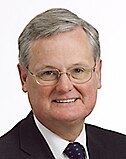| |||||||||||||||||||||||||||||||||||||||||||||||||||||||||||||||||||||||||||||||||||||||||||||||||||||||
All 78 of the United Kingdom's seats in the European Parliament | |||||||||||||||||||||||||||||||||||||||||||||||||||||||||||||||||||||||||||||||||||||||||||||||||||||||
|---|---|---|---|---|---|---|---|---|---|---|---|---|---|---|---|---|---|---|---|---|---|---|---|---|---|---|---|---|---|---|---|---|---|---|---|---|---|---|---|---|---|---|---|---|---|---|---|---|---|---|---|---|---|---|---|---|---|---|---|---|---|---|---|---|---|---|---|---|---|---|---|---|---|---|---|---|---|---|---|---|---|---|---|---|---|---|---|---|---|---|---|---|---|---|---|---|---|---|---|---|---|---|---|
| Turnout | 38.5%[1] | ||||||||||||||||||||||||||||||||||||||||||||||||||||||||||||||||||||||||||||||||||||||||||||||||||||||
| |||||||||||||||||||||||||||||||||||||||||||||||||||||||||||||||||||||||||||||||||||||||||||||||||||||||
 Colours denote the winning party, as shown in the results tables
*Seat change has been adjusted to allow for direct comparison with the results from the 1999 election.[2] ‡Notional 1999 results | |||||||||||||||||||||||||||||||||||||||||||||||||||||||||||||||||||||||||||||||||||||||||||||||||||||||
 | |||||||||||||||||||||||||||||||||||||||||||||||||||||||||||||||||||||||||||||||||||||||||||||||||||||||
| |||||||||||||||||||||||||||||||||||||||||||||||||||||||||||||||||||||||||||||||||||||||||||||||||||||||
| Part of a series of articles on |
| UK membership of the European Union (1973–2020) |
|---|
 |
The 2004 European Parliament election was the United Kingdom's part of the wider 2004 European Parliament election which was held between 10 and 13 June 2004 in the 25 member states of the European Union. The United Kingdom's part of this election was held on Thursday 10 June 2004. The election also coincided with the 2004 local elections and the London Assembly and mayoral elections. In total, 78 Members of the European Parliament were elected from the United Kingdom using proportional representation.
The Conservative Party and the Labour Party both polled poorly. The Conservatives experienced their second-lowest ever recorded vote share in a national election (even less than their 1832 nadir, although the party would do worse still in the 2014 and 2019 elections), and Labour their lowest since 1918. The UK Independence Party (UKIP) saw a large increase in support, increasing its number of MEPs from 3 to 12 and on popular vote pushed the Liberal Democrats, who themselves had increased their representation from 10 to 12 seats into fourth place. In Northern Ireland, Sinn Féin beat the SDLP in the polls and took its first Northern Ireland seat.
- ^ "Previous European Parliamentary Elections – About Parliament". European Parliament. Retrieved 26 May 2019.
- ^ "European Election: United Kingdom Result". BBC News. Retrieved 22 May 2014.
Cite error: There are <ref group=lower-alpha> tags or {{efn}} templates on this page, but the references will not show without a {{reflist|group=lower-alpha}} template or {{notelist}} template (see the help page).



